Articles
-
QISS contribution to European initiatives on quantum-safe transition
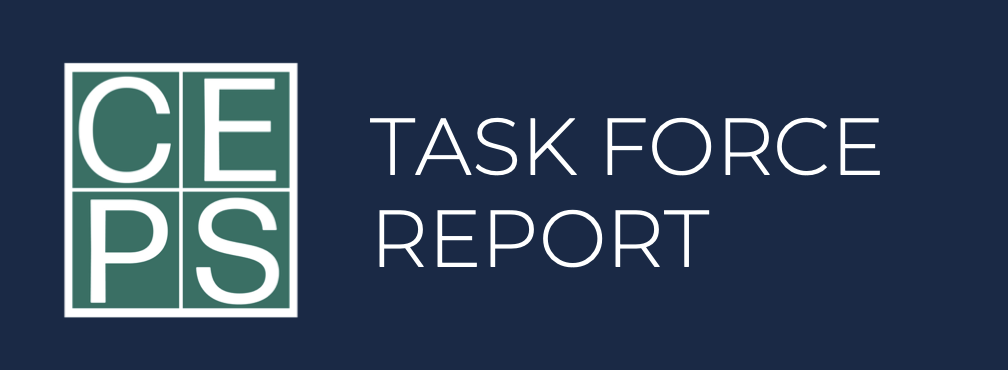 QISS Postdoctoral Researcher Laima Jančiūtė has comprehensively contributed to the activities of the Centre for European Policy Studies multi-stakeholder Task Force on Strengthening the EU Transition to a Quantum-Safe World which has concluded its work in December 2025 with the publication of a report examining the state of affairs and outstanding issues as well as formulating a series of strategic, operational and technical level recommendations. The objective of this collective endeavour was to bring to the fore the technical, market, governance and policy challenges involved in Europe’s transition to quantum-safety. The report calls for an urgent enhancement of the quantum-safe migration efforts in the EU.
QISS Postdoctoral Researcher Laima Jančiūtė has comprehensively contributed to the activities of the Centre for European Policy Studies multi-stakeholder Task Force on Strengthening the EU Transition to a Quantum-Safe World which has concluded its work in December 2025 with the publication of a report examining the state of affairs and outstanding issues as well as formulating a series of strategic, operational and technical level recommendations. The objective of this collective endeavour was to bring to the fore the technical, market, governance and policy challenges involved in Europe’s transition to quantum-safety. The report calls for an urgent enhancement of the quantum-safe migration efforts in the EU.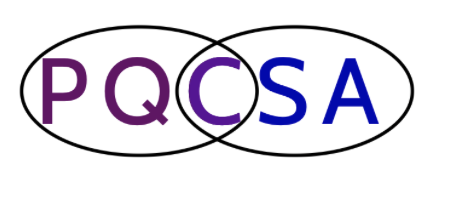 Alongside, Laima has recently contributed to the report by another European initiative entitled Post-Quantum Cryptography Support Action with an input highlighting the various governance aspects of the PQC transition process in the EU.
Alongside, Laima has recently contributed to the report by another European initiative entitled Post-Quantum Cryptography Support Action with an input highlighting the various governance aspects of the PQC transition process in the EU. -
'Net Echt' Podcast: Oppenheimer and Quantum
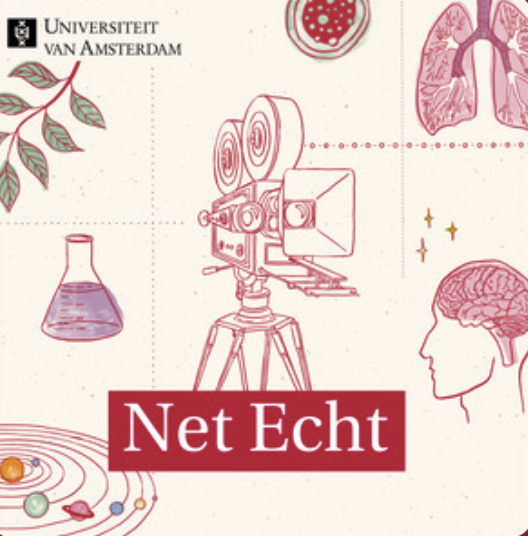
Net Echt is the podcast by the Universiteit van Amsterdam where films, series, and pop culture are examined through a scientific lens. In episode 20 Oppenheimer: Is Quantum the Next Atomic Bomb? the film Oppenheimer by director Christopher Nolan was the subject. Nuclear energy expert Machiel Kleemans and our QISS researcher Eline de Jong, discussed what moral dilemmas Oppenheimer faced, what can we learn from the way politics and science collaborated, and what lessons can this offer us for emerging technologies such as AI and Quantum.
Listen here to the postcast (in Dutch). -
QISS on the EU PQC Transition

Postdoctoral QISS researcher Laima Jančiūtė discussed the aspects of the post-quantum cryptography transition process in the EU on several occasions:
She was in May at the EU Digital Technologies and Policies conference in Brussels bringing together researchers, professionals, scholars, and policymakers, to discuss and enable exchanges and collaborations about broad-impact digital technologies in EU society and economy. It was organised by the Institut Polytechnique de Paris, and supported by the IEEE Society of Social Implications of Technology and academic networks EuroTech Universities Alliance and EuroTeQ University of Engineering.
In June she presented her work in a panel on National and Multi-National Initiativesat the ETSI/IQC Quantum Safe Cryptography conference in Madrid. While at the Brussels meeting of the Centre for European Policy Studies (CEPS) task force on 'Strengthening the EU transition to a Quantum Safe World Laima presented her work on the governance of PQC transition in the financial sector (key developments and the impact of DORA). The CEPS task force is working towards producing a report on the topic later this year. -
Bart Groothuis Guest in QISS course Quantum in Society
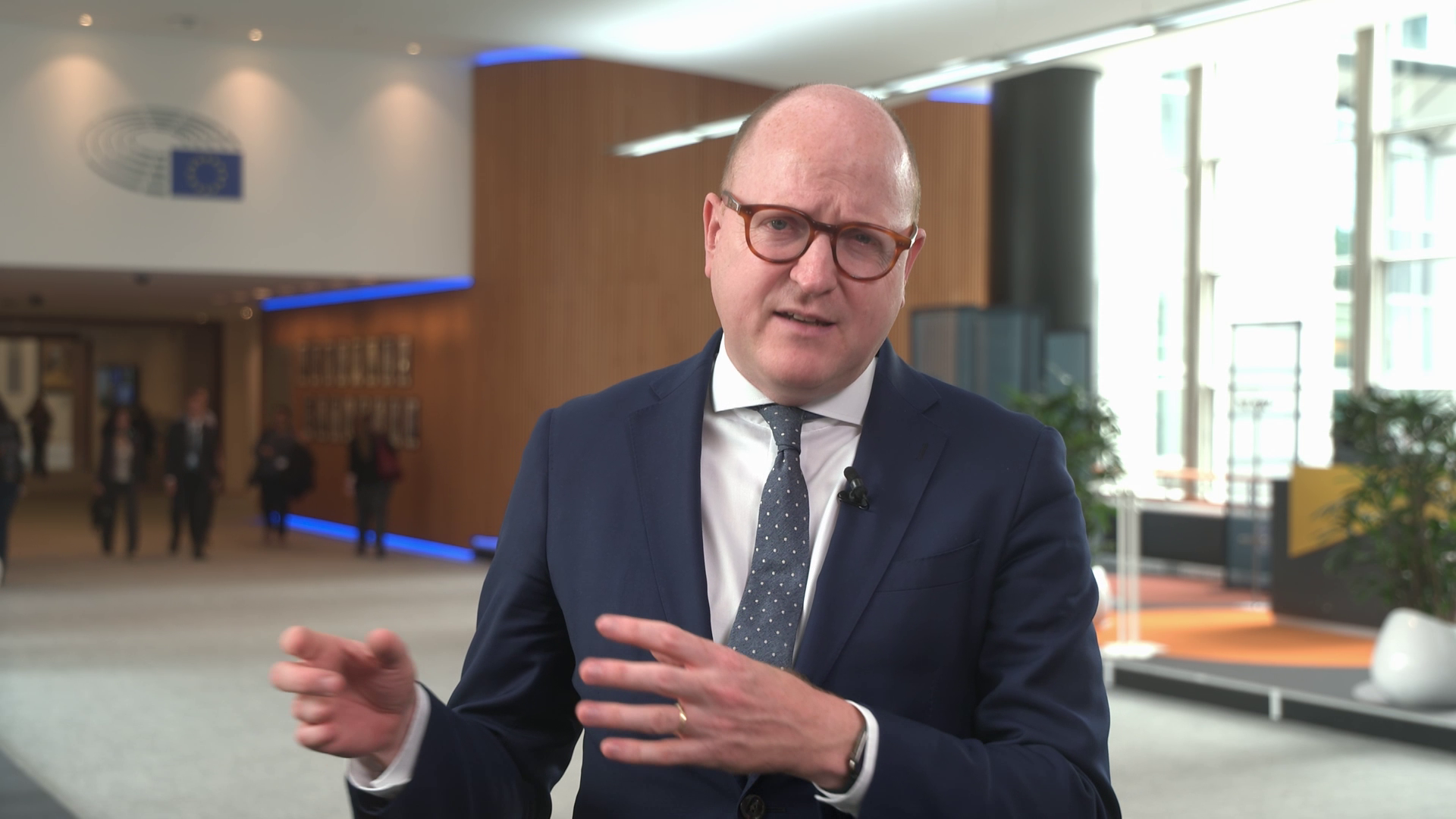
Bart Groothuis, member of the European Parliament, discusses the status of quantum business and the current geopolitical context in this video made especially for the UvA course Quantum in Society. Looking forward, Groothuis examines the political, technological, legal, and infrastructural conditions necessary for European quantum business to flourish. The Quantum in Society course is set up by QISS-lead Sebastian De Haro, in collaboration with Laima Jančiūte, and is coordinated and conducted by several QISS members in cooperation with the Institute for Information Law (UvA). Learn here more about the course and the UvA Master Quantum Computer Science.
-
A pint of quantum-safe cryptography!
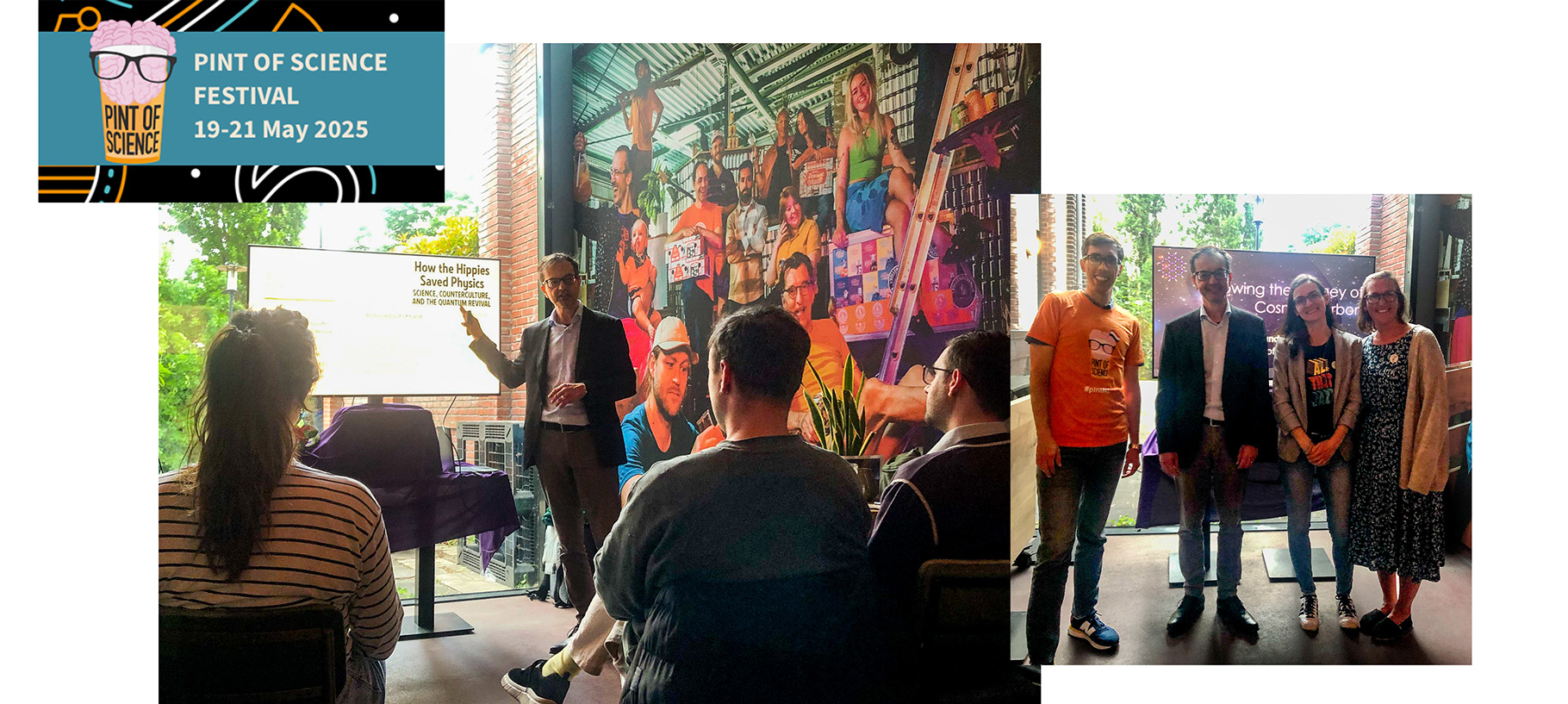 Sebastian de Haro gave during the Amsterdam Pint of Science Festival a sold out presentation at the brewery Poesiat & Kater. The enthusiastic audience learnt, with a beer nearby, more on the societal impact of quantum-safe cryptography. 'As the potential risks and consequences of cybersecurity breaches by future quantum computers are devastating, governments and organisations are already preparing for a transition to quantum-safe cryptography. However, as the development of other technologies illustrates, after an initial period of excitement, overhyped expectations can trigger disappointment and even withdrawal of resources, invoking technology winters that freeze further advancements.'
Sebastian de Haro gave during the Amsterdam Pint of Science Festival a sold out presentation at the brewery Poesiat & Kater. The enthusiastic audience learnt, with a beer nearby, more on the societal impact of quantum-safe cryptography. 'As the potential risks and consequences of cybersecurity breaches by future quantum computers are devastating, governments and organisations are already preparing for a transition to quantum-safe cryptography. However, as the development of other technologies illustrates, after an initial period of excitement, overhyped expectations can trigger disappointment and even withdrawal of resources, invoking technology winters that freeze further advancements.' -
New QISS research papers

Our QISS researchers have published several articles on responsible quantum technology and innovation. Most recently, Laima Jančiūtė’s paper Cybersecurity in the Financial Sector and the Quantum-safe Cryptography Transition: In Search of a Precautionary Approach in the EU Digital Operational Resilience Act Framework has been published in International Cybersecurity Law Review. In this paper Laima argues about the relevance of the precautionary approach to strengthening ICT security requirements and adopting quantum-resistant precautionary measures.
Eline de Jong and Sebastian De Haro have recently several articles available in pre-print that concern the nature of technological understanding and the ethics readiness of technology. On our articles page you will find all articles. -
The Rise of Quantum Software at UvA
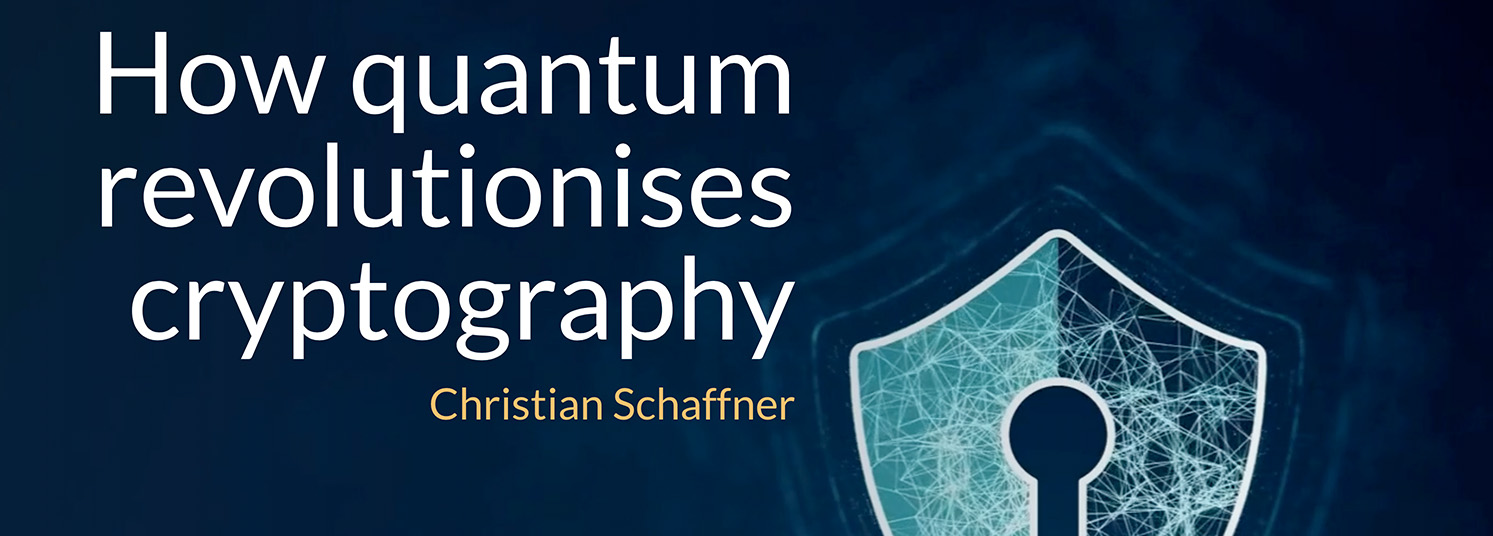 UvA has published an online article on the rise of Quantum Software, featuring QISS member Christian Schaffner on the quantum revolution that is taking place in cryptography: “The fact that the future quantum computer can use Shor’s algorithm means that most digital measures no longer suffice.”
UvA has published an online article on the rise of Quantum Software, featuring QISS member Christian Schaffner on the quantum revolution that is taking place in cryptography: “The fact that the future quantum computer can use Shor’s algorithm means that most digital measures no longer suffice.” -
QISS presentation at FYSICA
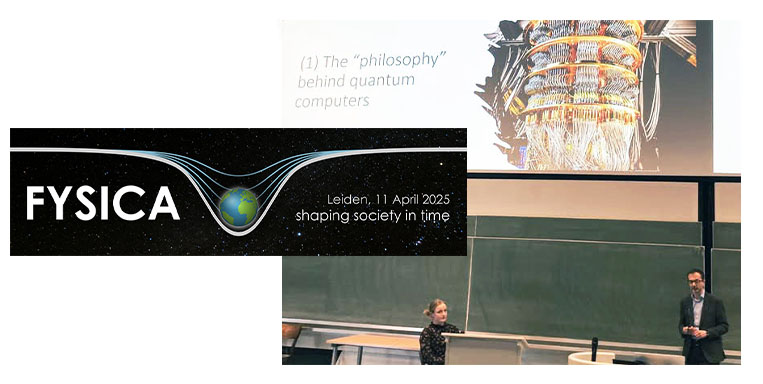
Sebastian De Haro and Ailsa Robertson gave a presentation at the FYSICA 2025 conference Shaping Society in Time. Their presentation The Societal Impact of Quantum-Safe Cryptography: Opportunities, Risks and the Path Forward dealt with the transition to quantum-safe cryptography, addressing common misconceptions and potential threats posed by quantum computers. They discussed the current quantum-safe cryptography ecosystem in the Netherlands, who are the main players, what role do they fulfill within the ecosystem, and what are the main challenges they face.
-
New research priority area: Shaping Interfaces Between Science and the Public
Our QISS project leader Sebastian De Haro is a PI of the recently awarded research priority area (RPA) Shaping Interfaces Between Science and the Public, which aims to establish a Public Methodology Centre to strengthen the relationship between science, citizen science, social debate and various professional practices. The RPA is a collaboration between the faculties of Humanities, Law, Science, Social and Behavioural Sciences, and the Amsterdam UMC. Read more about the RPA here, and stay tuned for the upcoming launch of the Public Methodology Centre.
-
Workshop on Ecosystem of Quantum-Safe Cryptography in the Netherlands
 In January, QISS researcher Ailsa Robertson held an interdisciplinary multi-stakeholder workshop on the ecosystem of quantum-safe cryptography. The purpose of this event was to provide a source of data for the QISS 'ecosystem' project which will produce policy guidance for proactive management of the Dutch transition to quantum-safe. The event brought together a diverse group of participants whose collaborative spirit and enthusiasm made for a positive and productive atmosphere. Valuable insights and data were collected for analysis and will be used for an article.
In January, QISS researcher Ailsa Robertson held an interdisciplinary multi-stakeholder workshop on the ecosystem of quantum-safe cryptography. The purpose of this event was to provide a source of data for the QISS 'ecosystem' project which will produce policy guidance for proactive management of the Dutch transition to quantum-safe. The event brought together a diverse group of participants whose collaborative spirit and enthusiasm made for a positive and productive atmosphere. Valuable insights and data were collected for analysis and will be used for an article. -
Quantuuuuhhm explained
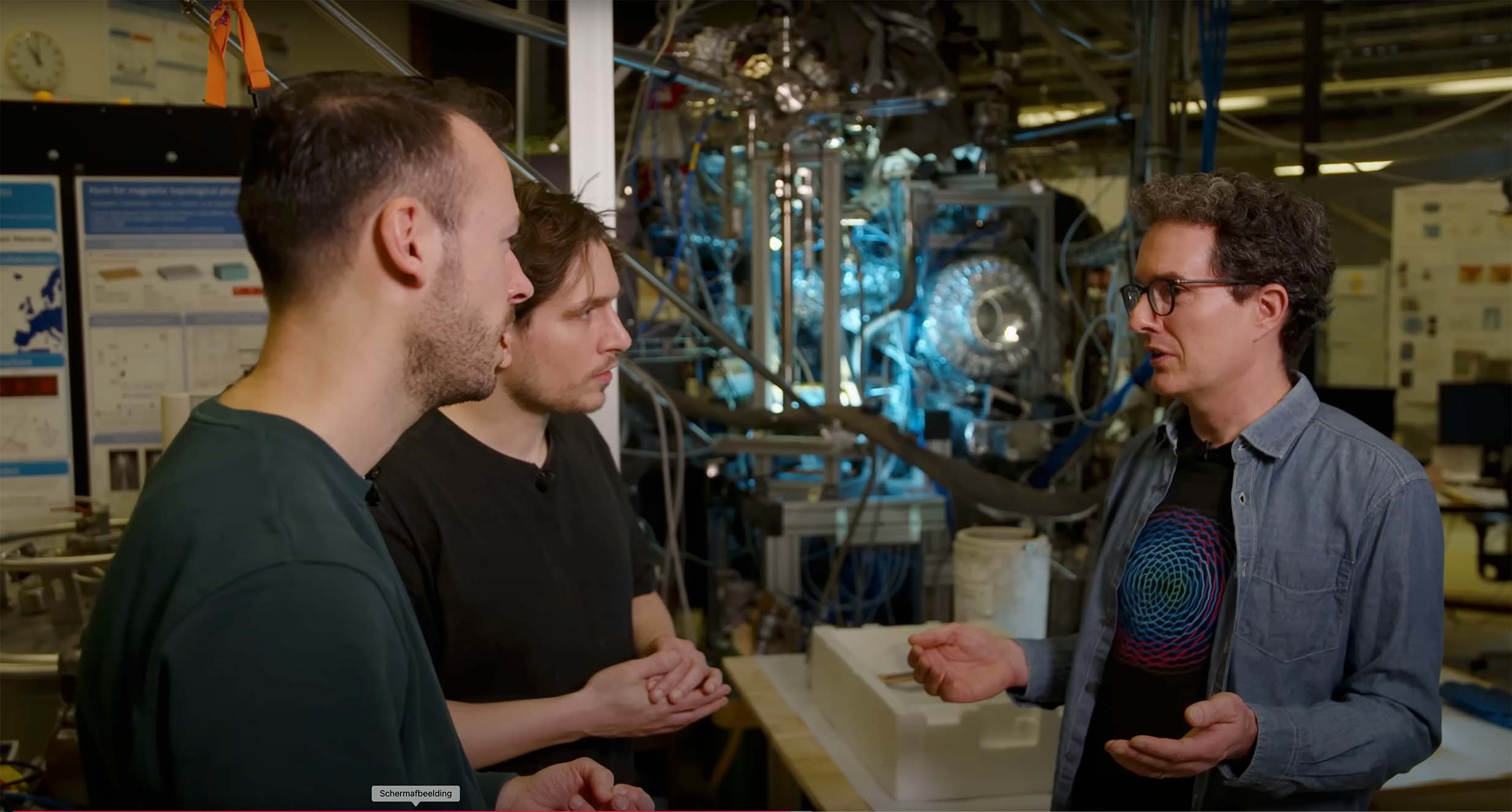
In the Quantuuuuhm Podcast episode ‘Hoe de quantumcomputer alles kraakt en veilig maakt’ presenters Sander Denneman and Adriaan ter Braack visit at the UvA our QISS member Christian Schaffner, who explains them more how Quantum computers work (in Dutch). View here.
-
Workshop on the Deployment of post-quantum cryptography
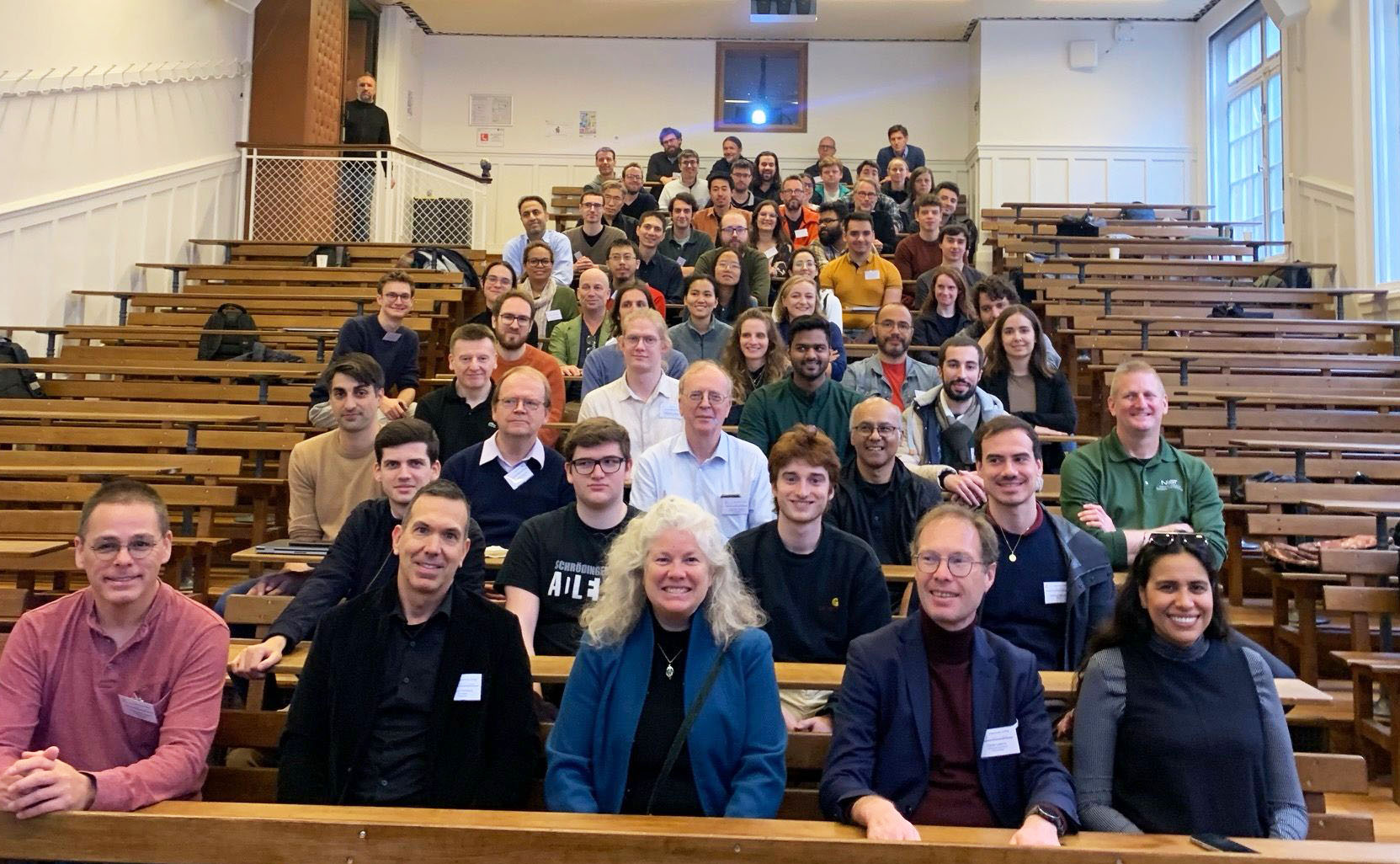
Ailsa Robertson attended early October a workshop of PQA Crypto Trimesterin Paris, serving as a forum to present and discuss the most pressing issues related to the practical deployment of Post-Quantum Cryptography (PQC). The program included skill-sharing sessions and open problem-solving discussions. Representatives from companies making the PQC transition were present, such as Microsoft (Christian Paquin), JP Morgan (Hubert le van Gong), Amazon Web Services (Matt Campagna) and Mike Ounsworth (Entrust).
-
Act Now! QISS Poster Winner at Alice & Eve
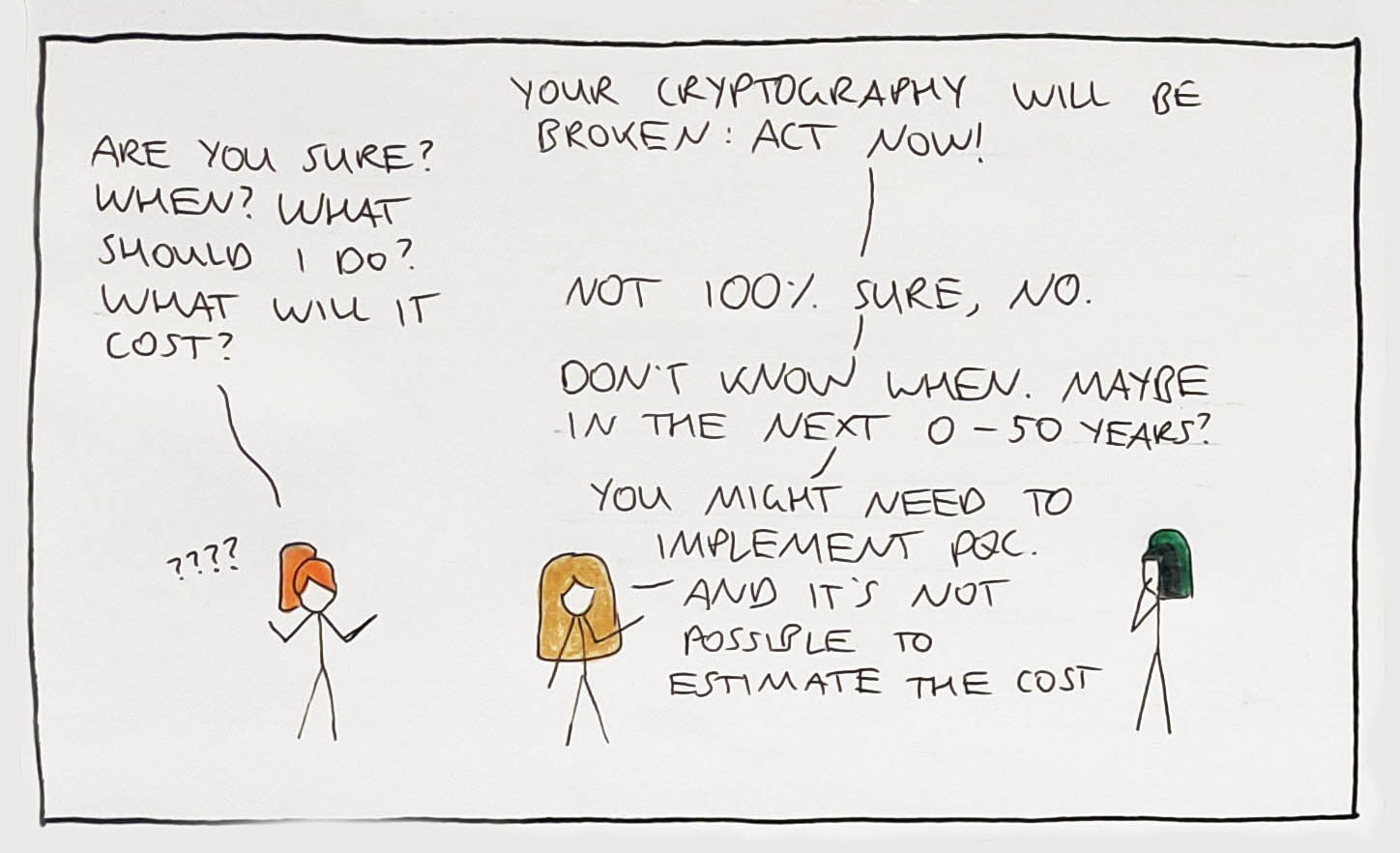
Our QISS researcher Ailsa Robertson won the poster competition presenting her QISS work at the Alice & Eve workshop in Leiden (25 October). Congratulations!
With her poster “Your Cryptography will be broken: Act Now!” Ailsa focused on bottlenecks and tensions of making the transition to quantum-safe cryptography in the Netherlands. Other topics at the workshop ranged from responsible research in Large Language Models, the role of gender in security decision making, to the ethics in computing.
See Ailsa’s full poster here. -
Giga-Open Quantum Institute event at CERN Geneva
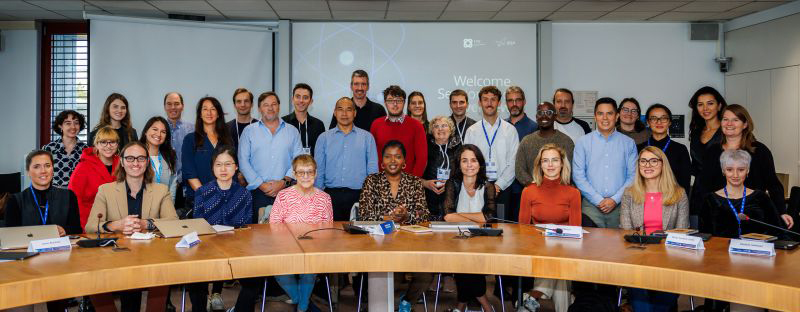
On 18 October, Giga—a global initiative to connect every school to the Internet by 2030— and the Open Quantum Institute—an initiative to connect quantum’s capabilities to the UN’s SDGs—, held an expert session titled “Quantum for Connectivity.” Eline de Jong was among the featured speakers, where she addressed both the practical and ethical implications of quantum technologies. In her talk, Eline outlined key structural challenges involved in embedding quantum technologies into society, highlighting considerations essential for responsible implementation. This session also served as a preliminary event for the upcoming “Quantum Humanity” conference scheduled for Spring 2025.
-
QISS presentations at Summer conferences
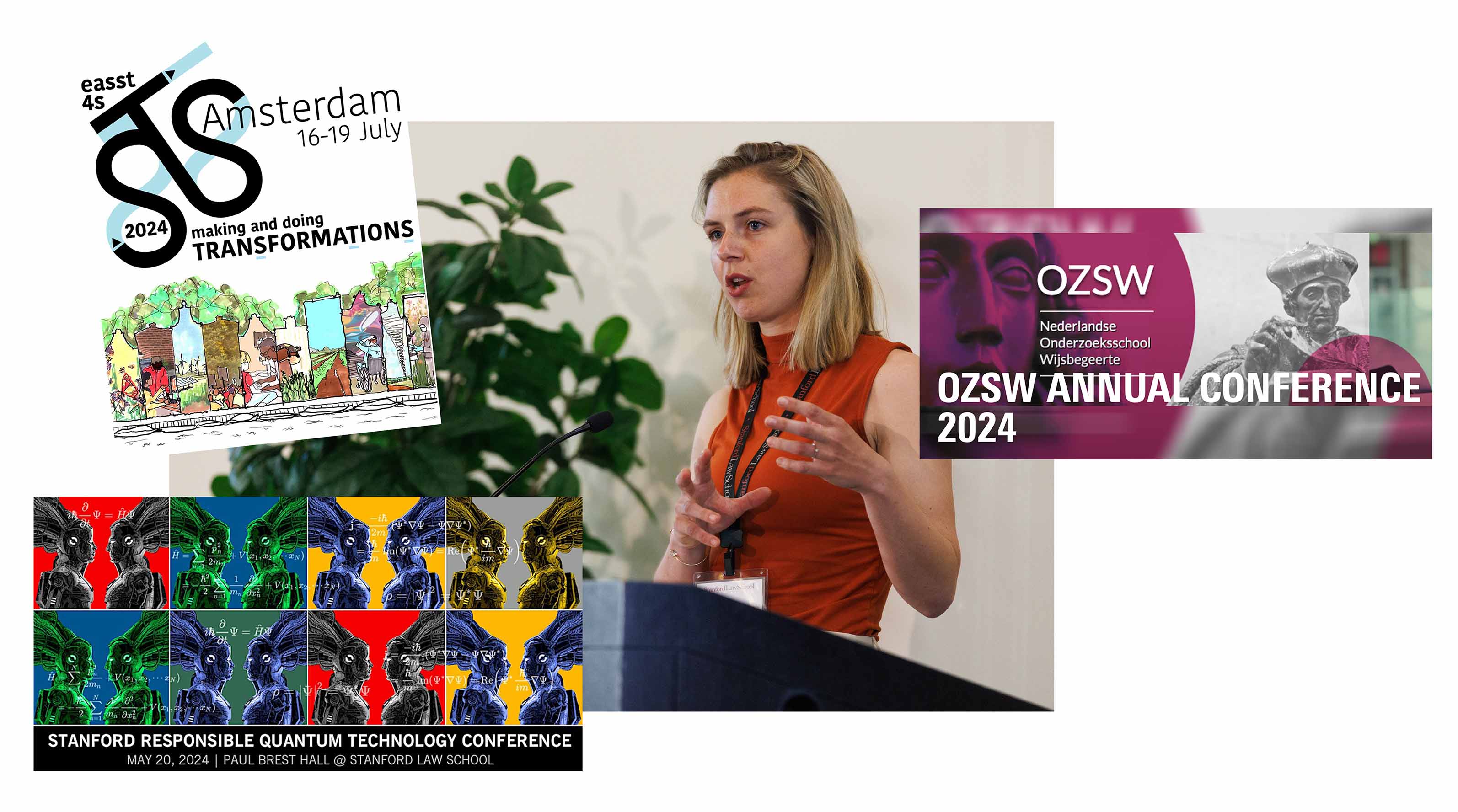
This Summer, Eline de Jong presented her research about “technological understanding”, co-authored by Sebastian De Haro, at several conferences: Responsible Quantum Technology Conference (Stanford), EASST-4S (Amsterdam), and OZSW Annual Conference (Eindhoven). Technological understanding is the kind of understanding that is essential for designing and using technology. In their papers, Eline and Sebastian develop this concept, and specify three distinct types of technological understanding, each relevant to different contexts. This means that the understanding that is required for practical use of a technology or for thinking up new applications may differ from the understanding needed to build these technologies. This pluralistic approach to ‘expertise’ offers a valuable framework for assessing and improving understanding of technology in practice.
-
Successfully defending Accessibility of Quantum Computers
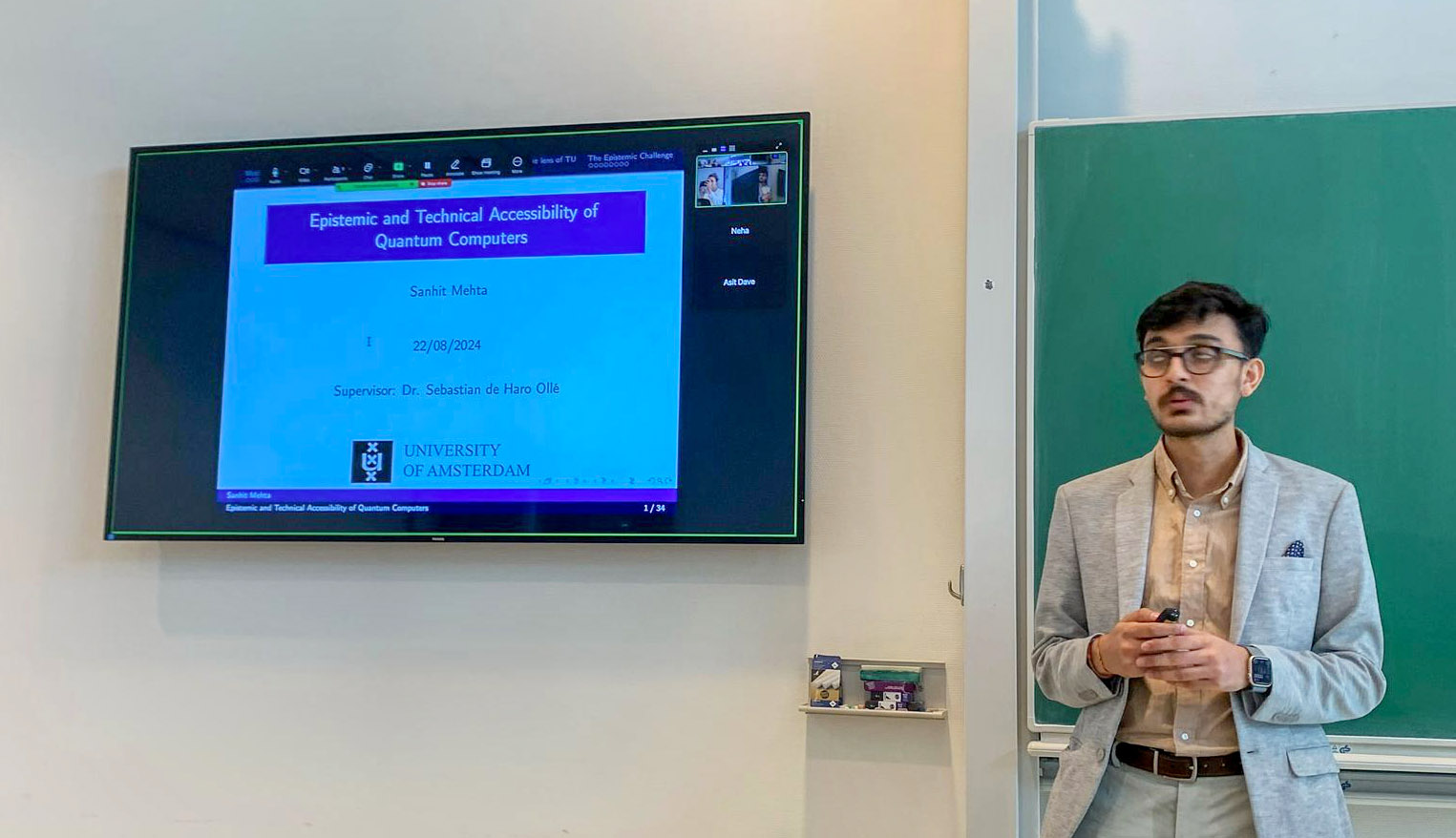
Congratulations from all QISS members to Sanhit Mehta who successfully defended his Master of Science thesis on the “Epistemic and Technical Accessibility of Quantum Computers” !
Sanhit: ‘I thank my supervisor Sebastian De Haro, my daily supervisor Eline de Jong […] and other members of the QISS project for conversations from which I gained valuable insights. As I conclude another phase of my life, I am excited to see what lies ahead.’
Sanhit now joins the SURF team on their project of Fair Access To Quantum Computers. An exciting new chapter for him!
-
Open letter Bart Groothuis on Quantum Security, with a QISS connection
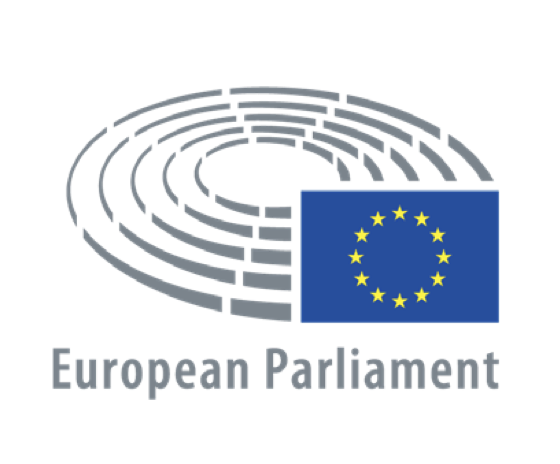
QISS members Ot van Dalen and Christian Schaffner suggested to Bart Groothuis, member of European Parliament, to put the transition to quantum-safe cryptography on the EU agenda. As a result, Bart Groothuis wrote an open letter to the commissioner, the European Data Protection Supervisor (EDPS) and the European Data Protection Board (EDPB). This made for quite some news in the Dutch media, see for instance NOS, BNR and iBestuur.
-
Gravitation grant for challenges in Cyber Security

The ‘Challenges in Cyber Security’ project brings together top researchers from the hard sciences in the cyber security field. This, according to Minister Dijkgraaf (Education, Culture and Science), places the research among ‘the world's scientific top’, and the project will thus receive a substantial NWO Gravitation grant.
QISS member Christian Schaffner will be working on the project and comments: ‘I’m really excited to get started with this big cybersecurity project. Together with the other consortium partners from TU/e, VU, RU and CWI, we are taking a systematic approach to make sure our cyber systems are secure. For example, we address long-term security by looking ahead to the time when quantum computers could break the encryption that keeps our online data safe right now. Even though that might be years away, bad actors could collect encrypted information today and crack it open later when they have the right tools. So we’re getting ahead of the game to protect our data for the future.’ -
New Master Quantum Computer Science at UvA
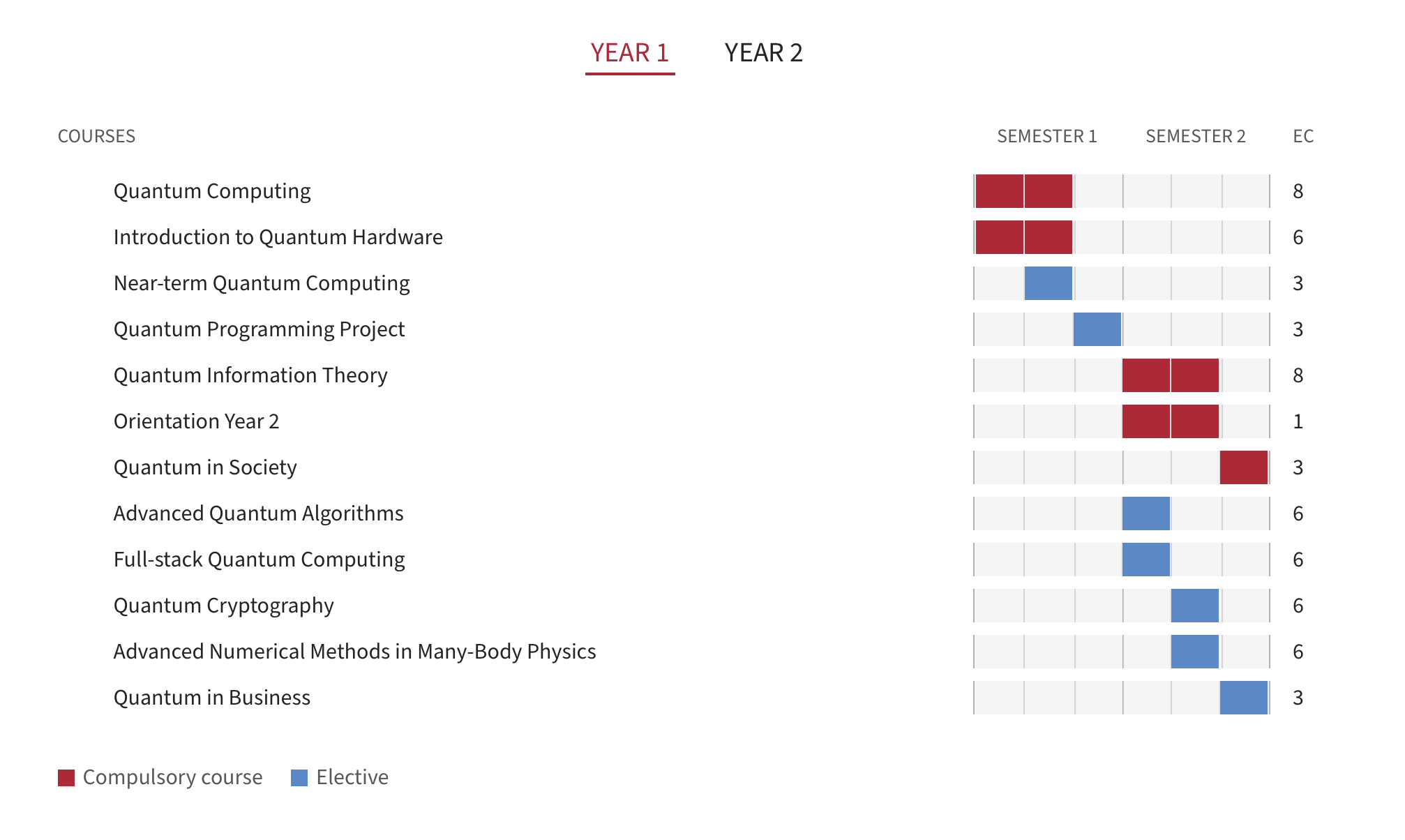
On 29 January a new Master Quantum Computer Science at the University of Amsterdam was accredited. Several courses are coordinated and conducted by QISS members and QuSoft, such as ‘Quantum in Society’ by Sebastian de Haro, and ‘Quantum Cryptography’ by Christian Schaffner. Enrolling is possible in May.
-
QISS connected RQSC project awarded
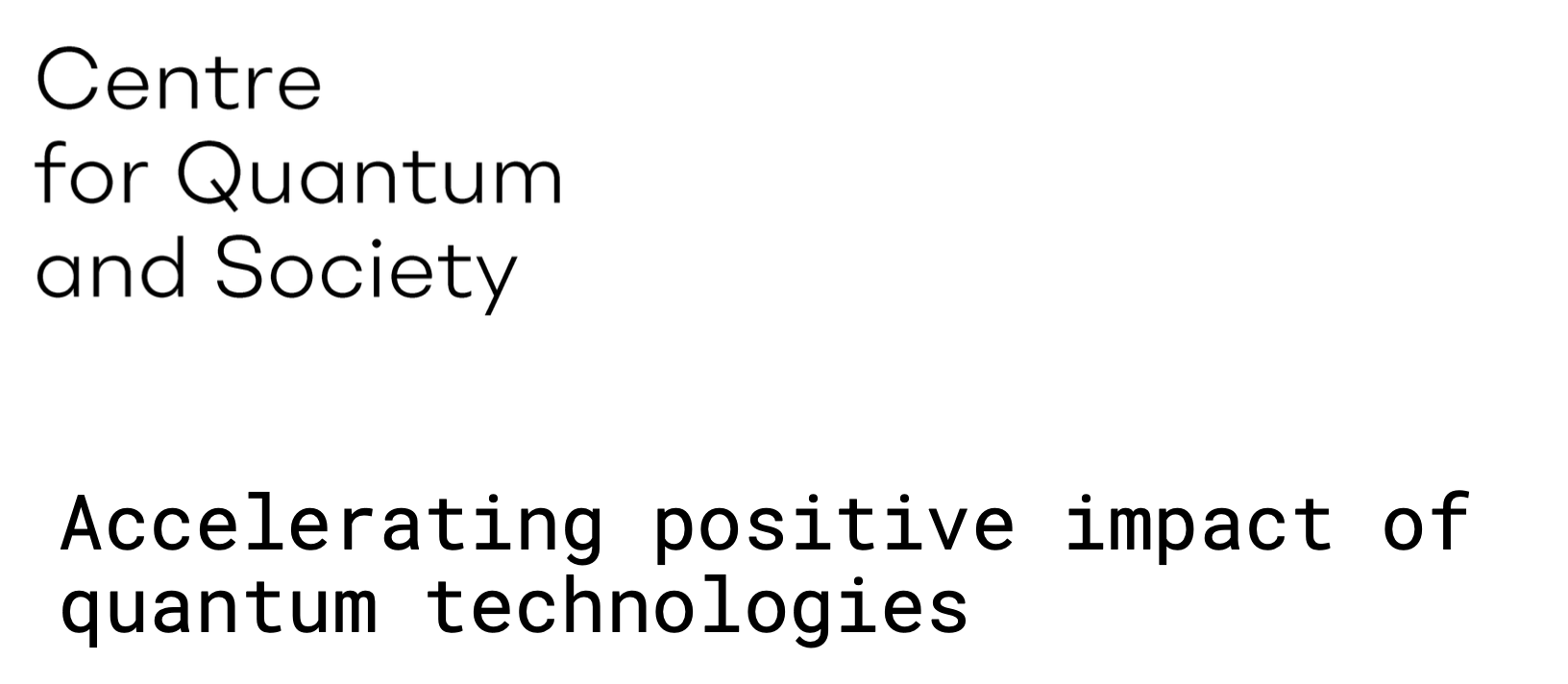
Exciting news! Our QISS team has been awarded a grant by the Centre for Quantum & Society (Quantum Delta NL) for projects that accelerate the positive impact of quantum technologies in society. Our proposal Societal Incubator: A Responsible Quantum-Safe cryptography Transition (RQSC) builds on and supports our NWA-funded QISS project, in partnership with TNO and Fontys University.
The aim of the RQSC project is to use participatory and user-centre design principles to identify and implement societal requirements for RQSC-transition. This will be done through two workshops (Autumn 2024 and Spring 2025) where upstream stakeholders will be engaged with representatives from industry, academia, government and civil society. Read here about the call and awarded projects.
